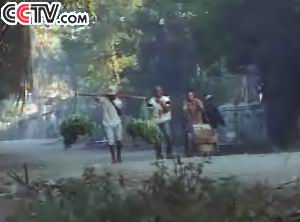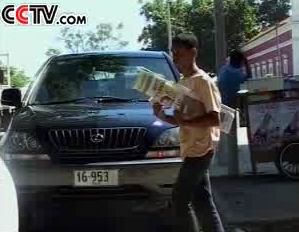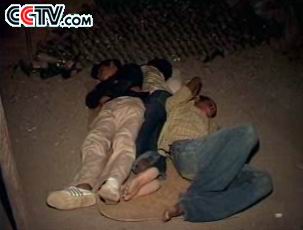Source: CCTV.com
01-12-2007 15:39
Education embodies the promise of a better life for children. But in East Timor, many children don't have this chance because they can't afford it. Street children are an unsolved problem. They help themselves by inventing new games for fun and for survival. But in today's working Asia Series, RTTL East Timor's Antonio Dias will uncover the real lives of East Timor's street children.
 |
Usually children, each of them have their own dream of what they want to achieve for the future. The dreams are simple, they are playful, joyful and they seek a good education in order to reach the objective of their dreams.
But for a country that has just come out of conflict like, Timor Leste, having to rebuild has many problems. The reality is much harder then the dream. Many times there are wonderful dreams but if there is no assistance then the dream cannot be reached and remains a dream.
In Timor Leste, there are no statistics to know the exact numbers of children on the streets. And the reality is that many children don't have the chance to attend school because their parents have financial difficulties.
To survive children have to do many tasks beyond their capacity.
 |
Nuno Saldanha said “I want to go to school, but I don't have pencil, book and money to pay the school. That's why I sell orange to get some money and hopefully I can go to school.”
Alfredo Piedade is one of them who is now working for USILINA bakery in the capital Dili to help his family.
Here is the place where Alfredo spends the whole night, manually preparing flour and dough for baking.
The bakery owner said “I don't agree with employing children of this age but they come to me and ask for work, and their family as well asks. Because of these difficulties I agree to employ them. “
Tiredness and sleepiness are always the obstacles when working at night, but time is urgent because Alfredo has to work to finish his job so that he can receive cash for the nightly work.
 |
For his night work he earns two dollars and fifty cents.
For Alfredo there is no time to rest and play. At night he makes the bread then during the day he has to go out to join a friend on the street to sell the bread so he can receive some more money. Although it doesn't satisfy him. But for Alfredo it is still better then nothing.
But why can't Alfredo go to school? “If I go to school my four other brother have to stop their study. So I have to work to get some money to help them.” Alfredo said.
The difference with Alfredo and other children that have financial difficulties is that they are able to get money to pay their school fees. Alfredo works so he can pay school fees for his four brothers and doesn't earn enough for him to attend school.
Reacting to this issue the government, through the Ministry of Education, is now identifying the problems to find a solution for those children in need of support and recognizes those that can't afford it and to allow them free education.
Minister of Education Dr. Amindo Maia said “We know that many people can't pay the school even just 50 cent per month for public schools. We are now identifying the problem to find the solution for those families who really have the financial difficulties to allow them free education and also how to deal with those family who have 4 or 5 children at school but they have financial difficulties.”
The way to solve the issue is open now with the Millennium Goal, we believe with good will and sincere effort the government will definitely be able to solve this education problem. Because children are the future of this country. Who knows, today they spend their life on the streets, tomorrow they may be the leader of this country.
Like other developing countries in South Asia, rural communities in Nepal have been forgotten and left behind. This has contributed to a rise in the exploitation of child laborers. Tune in tomorrow for our story on Stone Crushers in Nepal.
Editor:Du Xiaodan
